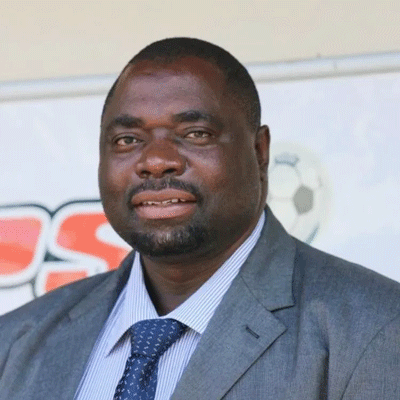
BY MUNYARADZI MADZOKERE
THE Premier Soccer League (PSL) and Zifa are headed on a collision course after the league expressed disappointment over the revised allocation of the Fifa Covid-19 relief funds by the the local football motherbody.
In the initial allocation budget, which was published in July, the PSL was in line to get $20 000, which has since been halved under unclear circumstances following the Zifa executive committee meeting on Monday last week.
The PSL argues that the amount allocated makes it difficult for the league to restart competitions as the return of football activity in the country this year hangs by the thread.
“The Premier Soccer League is naturally disappointed with the allocation of US$10 000 from the Fifa Covid-19 relief funds. We understand the relief funds are meant to assist football organisations to restart competitions and with this allocation the PSL may find it difficult to restart football competitions unless we get more funds,” PSL chief executive Kenny Ndebele told Standardsport in an exclusive interview.
“We appreciate that the national association has the ultimate authority or prerogative to disburse funds as it pleases; but there is a feeling that there is vindictiveness on the part of the association after the PSL objected to receiving funds in RTGS dollars,” Ndebele added.
Fifa, the world football governing body, gave all its member associations, including Zifa, a US$1,5 million rescue package for the game.
But Zifa sent tongues wagging after they set aside $110,5 million toward assistance of their football affiliates and activities with $25,6 million allocated to the PSL.
- Chamisa under fire over US$120K donation
- Mavhunga puts DeMbare into Chibuku quarterfinals
- Pension funds bet on Cabora Bassa oilfields
- Councils defy govt fire tender directive
Keep Reading
The clubs were set to get around US$5 600 each at the prevailing bank rate then to cushion them from the financial crisis caused by the Covid-19 pandemic and Zifa had proposed to distribute it in local currency.
For the office administration the PSL was given initially US$20 000, which translated to $1,3 million in local currency, but the new allocation amounts to $825 606.
A consultative meeting ensued with the PSL clubs demanding their share in hard currency and Zifa had to backtrack on their earlier decision.
However, in a sudden about-turn last week Zifa revealed that the PSL office admin grant has drastically shrunk while allocations for clubs were slightly reduced to US$5 000.
“The PSL does not understand why the league and its clubs were allocated a total sum of US$110 000 from the funds when they employ over 750 professional employees,” Ndebele said.
Ndebele also questioned why Zifa recognised referees but failed to recognise footballers as did most football associations around the continent, among other issues.
Zifa’s decision to allocate a large chunk of the funds to inactive affiliates such as Beach Soccer and Futsal has also stirred controversy.
While Zifa was given the task to allocate the funds as they deem fit, the PSL is planning to approach the Sports and Recreation Commission (SRC) and the World Leagues Forum.
“The PSL is baffled why the referees have been allocated $110 000 for the restart of football, yet players who are the key stakeholders are not recognised.
“The allocation of a large chunk of funds to Beach Soccer, Futsal, and Areas Zones is strange. The PSL will be approaching the Sports and Recreation (SRC) World Leagues Forum and seek assistance,” Ndebele said.
Football activities in the country have been on hold since the outbreak of the Covid-19 pandemic and Zifa is waiting on the PSL medical and Zifa competitions committee scientific research to make a decision on the resumption of football in the country.
But the upcoming back-to-back Afcon qualifiers against Algeria scheduled for November are certainly going to give impetus to the plans for the resumption of professional football in the country.











